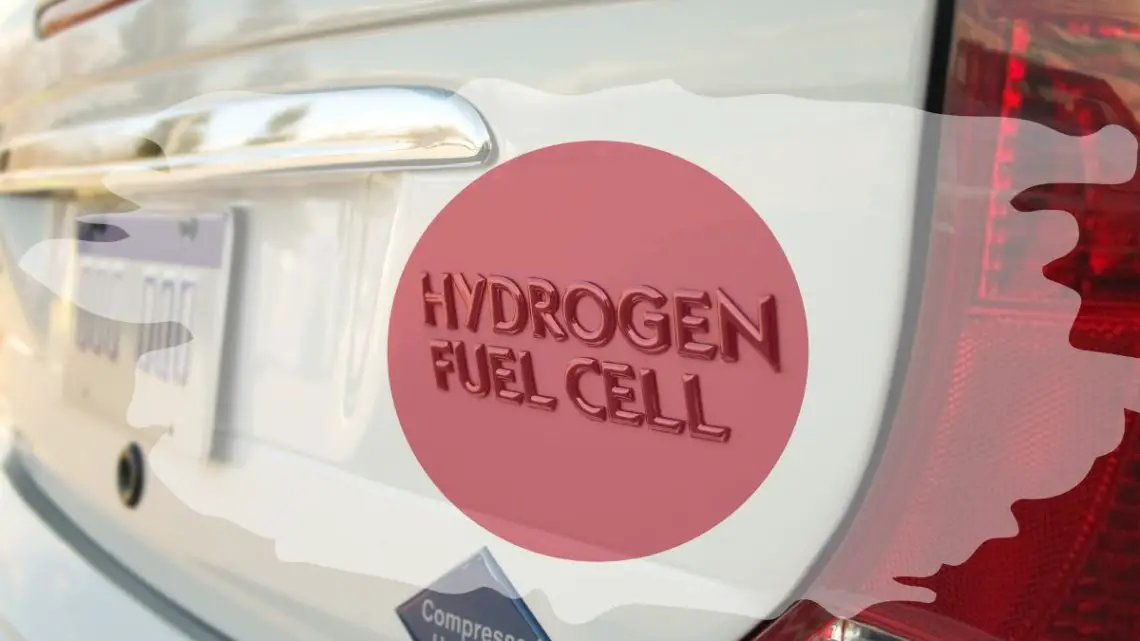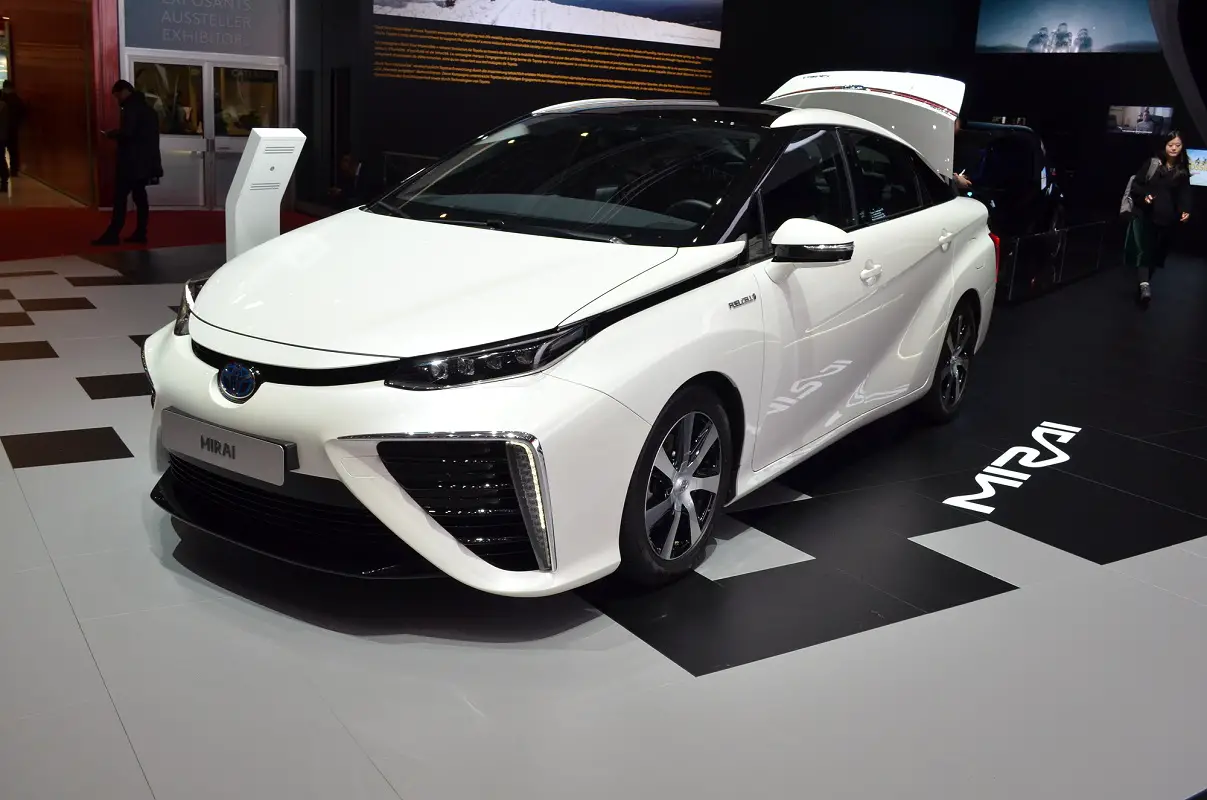
Why are hydrogen fuel cars such a draw in Japan?
May 25, 2023Though Toyota has made the biggest headlines, other automakers are committing to H2 as well.
Toyota has been outspoken in its passion about hydrogen fuel cars, already having had two versions of its Mirai on the market for several years, but other Japanese automakers have recently collectively agreed to develop their own H2 passenger vehicles.
Honda, Kawasaki, Suzuki and Yamaha have all committed to designing H2-powered small vehicles.
That said, there has yet to be any specific mention of hydrogen fuel cars. The interest is certainly there, but this particular agreement is focused on a spectrum of vehicles. Among those that are expected to arise from this agreement include motorcycles, drones and even construction equipment.
Even if fuel cell cars don’t make it into this mix, there are still Japanese automakers already invested in this technology. As aforementioned, Toyota has already released its own models of H2-powered vehicles and its new CEO has confirmed that it will continue to pursue this technology, even as it simultaneously rolls out battery electric vehicles (BEVs). As was reported by Hydrogen Fuel News, the company is also releasing several vehicles in its Crown line this fall, many of which will come in H2-powered versions.
Aside from hydrogen fuel cell vehicles, Toyota has also been behind the development of H2 combustion engines, mainly for some of the brand’s racing vehicles.
Why is there such appeal in Japan for hydrogen fuel cars and other vehicles powered by H2?
One substantial motivator for automakers to develop vehicles powered by H2 comes from the Japanese government. This has been the case for several years. As is the situation in Europe, China, and to a smaller extent, the United States, the Japanese government has been calling for an increase in zero-emission passenger vehicles. That said, what has made Japan’s situation different is that in 2017, it also became the first country in the world to have issued a national hydrogen strategy.

Credit: Photo by depositphotos.com
Back then, Honda and Toyota both offered hydrogen fuel cars, with Honda selling the Clarity and Toyota with its Mirai. That said, progress in this area has been bumpy, rather than smooth. Honda reached the point that its CEO Toshihiro Mibe said that despite how much work was put into the development of the H2 vehicle, he had doubts about whether this option would ever function as a mainstream transportation solution. However, that statement was made several years ago, before many other countries started making substantial investments into H2.
Collaborating on hydrogen fuel cell cars
Last week, Honda, Suzuki, Yamaha and Kawasaki jointly released a statement saying that they intended to form HySE (Hydrogen Small Engine), a research association. This would be established along with Toyota helping on the edge to see how some of the tech they develop can be adapted for larger vehicles.
Starting small
 The main focus of the new collaboration is unlikely to be hydrogen fuel cars – particularly not at first – though passenger vehicles can only benefit from the technologies that result.
The main focus of the new collaboration is unlikely to be hydrogen fuel cars – particularly not at first – though passenger vehicles can only benefit from the technologies that result.
The group also intends to place a focus on H2 combustion technology. Though not as clean as fuel cells, which don’t produce carbon emissions, the goal will be to develop hydrogen combustion alternatives to fossil fuel burning internal combustion engines in order to substantially reduce greenhouse gas emissions, even if they are not entirely eliminated.
Interest in H2 combustion has been rapidly growing of late, particularly as electric vehicles (EVs) have been becoming rapidly more popular and their drawbacks – such as charging time, lithium demand, and strain on electrical existing grids (which aren’t necessarily green, themselves) – are finding themselves in the spotlight.
Ready to test your knowledge on the most abundant element in the universe? Take our fun and engaging Hydrogen Quiz now! [forminator_quiz id=”58712″]



 With over 15 years of reporting hydrogen news, we are your premier source for the latest updates and insights in hydrogen and renewable energy.
With over 15 years of reporting hydrogen news, we are your premier source for the latest updates and insights in hydrogen and renewable energy.
Porsche and Rolls-Royce claim their prototype hydrogen engines produce so little NOx, they don’t need catalytic converters. Sounds like hydrogen ICEVs will be a worthy addition to EVs and FCEVs as they all work together to reduce the pollutants caused by gasoline and diesel engines.
The sooner we develop and produce hydrogen powered cars the better . They are the answer to distance travel and no need to burn fossil fuel to charge them. Electricity demand in Australia is increasing already and with the closeure of power stations we will have a shortage of power before we even begin to get lits if electric vehicles.
Hydrogen powered internal combustion engines (ICE) are very inefficient compared with hydrogen-fuel cell-battery-electric (FCEV) power, around 30% in converting the hydrogen energy into traction compared with FCEV of around 65%, so converting ICE engines to hydrogen power may be a quick fix, but in the long term either battery only (EV) small vehicles for local driving or FCEV for larger vehicles or long distance driving is the correct solution, but what is holding back the sales of FCEV sales is the lack of hydrogen filling stations, especially in the UK where there are now just a few, less than 10, that are operational, around half of what were operational two years ago due to a lack of hydrogen powered vehicles to use them. Developing the use of FCEVs is vital to stop the use of fossil fuels by 2050 but will take many years for vehicle owners to convert their fleets to EVs or FCEVs and we have just 27 years to do it. In the UK the National Infrastructure Commission has no plans to support the roll out of hydrogen filling stations which are key to the development of the use of hydrogen powered vehicles. Governments need to de-risk the investment in hydrogen filling stations by providing financial support for their installation.
Bev,s aren’t for everyone and they wont be made for everyone, fcev,s H2 biofuels and synthetic e fuels. Australia will need the lot we are making less electricity and we will need 50 times more, Australia is not the place for EV,s only its just to big and if you want less emissions in total an hydrogen internal combustion engine car requires 3 or 4 thousand kg less emissions to make compared to a BEV and existing ICE cars will be able to be converted to hydrogen as its only the top of the engine and the fuel system that needs replacing, duramax will hav a range of engines starting with a 1.9 litre engine in 2025 , electricity is to hard to store and you can talk all you want you cant change physics
Are then any test cars here in the USA
Hydrogen is, for several reasons, an effective solution in the automotive industry. As was already clear, Toyota has perceived its value and has already developed two versions of an H2-powered vehicle. Let us hope that Honda, Kawasaki, Suzuki and Yamaha will also succeed in bringing to market car models (and why not, also motorbikes) with this innovative type of power supply: it is a functional solution to replace fossil fuels and minimize the polluting emissions produced by heat-engine vehicles.